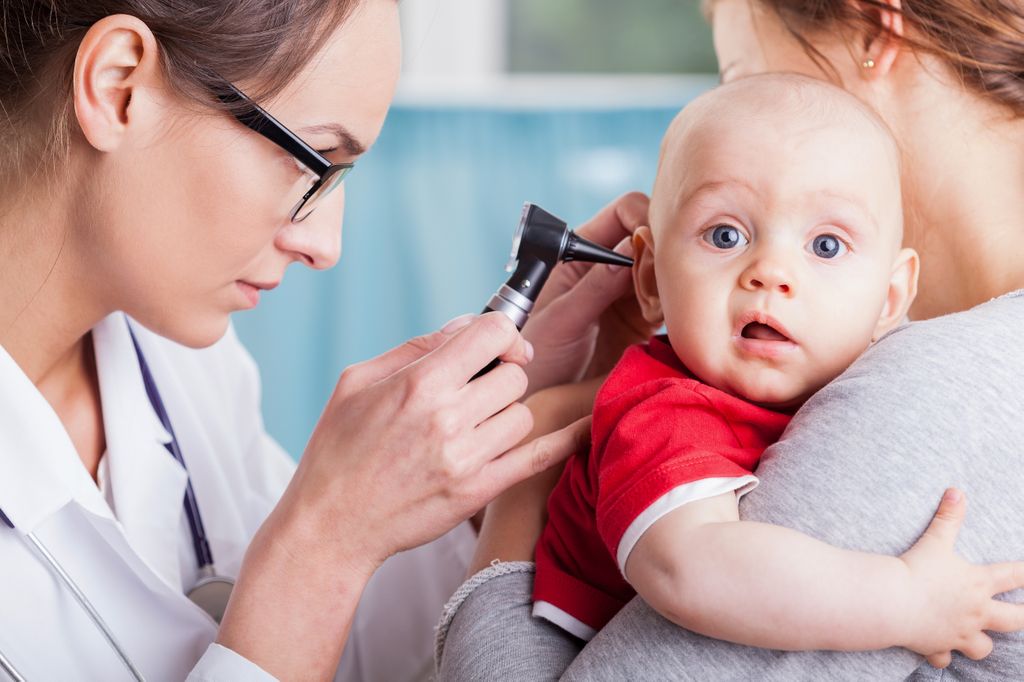Why check newborns?
Checking for hearing loss in newborns is very important. When newborns have hearing loss and the diagnosis is made early, effective intervention can help them develop a normal or nearly normal speech, language and a landmark hearing.

- Almost 3 to 6 in 1000 newborns have significant hearing impairment.
- More than 95% of newborns that are born deaf have parents with normal hearing.
- Hearing loss is invisible: it cannot be viewed by someone just by checking the ears of the newborn.
- Most newborns with hearing loss have no symptoms.
Spoken language and listening skills
A baby with normal hearing should be able to do the following:
Near the age of 2 months
To be startled by loud sounds
To calm down with familiar voices
To make exclamations like “oh”
Near the age of 4 months
To look for the sources that produce sounds
To begin to “chatter”
To begin to scream and chuckle
Near the age of 6 months
To turn its head to loud sounds
To begin to imitate the sounds of speech
To say words like “da-da”
Near the age of 9 months
To imitate the sounds of speech of others
To understand no and hello
To turn the head towards soft sounds
Near the age of 1 year
To properly use the words Mom or Dad
To give its toys when asked
What should I know about the hearing check?
- The hearing checks are fast, safe and do not hurt
- Sometimes newborns are checked once or twice
- The hearing check lasts about 10 minutes
- Most babies sleep during the control
- You will get the test results before leaving the hospital
If my newborn baby does not pass the hearing check?
Some babies that need a repeated check or a hearing examination have some hearing loss.
If your newborn does not pass the hearing check, it is important to book an appointment with an audiologist for a comprehensive hearing check.
If my newborn passes the hearing check?
Newborns that have passed their hearing check are usually fine. However, some babies can hear well enough to pass a hearing check while their hearing may not be entirely normal. Some newborns may pass the hearing check, but then lose their hearing due to illness, a medication or due to genetic causes – after leaving the hospital. Therefore, even if your newborn baby passes the hearing check, inform your audiologist or your pediatrician if you suspect a hearing loss at any time.
Other warning signs of hearing loss
Your newborn may be at risk for delayed onset of hearing loss if any of the following happens to it.
- You or someone who cares for the baby has concerns
- If there is a family history of childhood hearing loss
- Neonatal intensive care is to treat ECMO
- Chemotherapy
- Some contamination occurred before or after birth (including CMV, bacterial and viral meningitis)
- Some disorders that affect the nervous system of the baby
If any of these applies to your baby, book an appointment with your pediatrician or a child-audiologist (ENT) to make the necessary diagnostic tests.